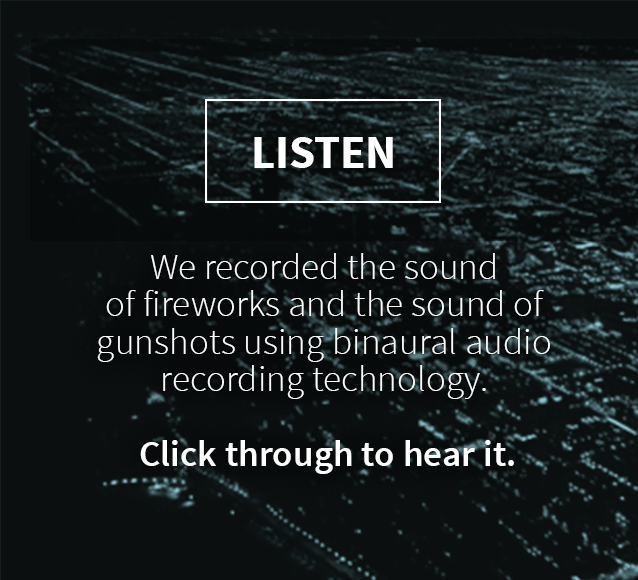

He was very sweaty, and breathing hard, and suffering. I recall him being conscious when he arrived but not alert enough to understand what was happening around him. I recall one in particular, a 14-year-old boy who was caught in a crossfire - I remember this one because I was training in Pittsburgh and it was the first time that I’d seen a young person dying from a gunshot wound. What incidents stick out most in your mind from your time in the ER? Here’s what he has learned about what happens when a bullet enters a body. Two years later, Newman is still pushing for the gruesome details to be confronted. “If the carnage remains undiscussed,” he wrote in his op-ed, “we risk complacency about an American epidemic - one that is profoundly difficult, but necessary, to watch, and to confront.” Horrified by the Newtown massacre, Newman felt compelled to speak out about the hundreds of gunshot victims he’d treated over the years. He has, in other words, pretty much seen the worst of it. In 2005, he was deployed to a combat hospital on the outskirts of Baghdad. He’d spent most of his career treating all manner of gunshot wounds, and for 14 years served in Level 1 Trauma Centers around the East Coast. David Newman, the director of clinical research in the department of emergency medicine at Mount Sinai Hospital, in New York City. But in January 2013, less than a month after the mass shooting at Sandy Hook Elementary School, an op-ed appeared in The New York Times written by Dr. When a gunshot victim enters a Level 1 trauma center, his chances of survival increase by 25 percent.Īs a matter of patient privacy, the doctors and nurses at the frontline of America’s gun violence epidemic rarely speak about their work. Unlike conventional emergency rooms, Level 1 trauma centers are uniquely equipped to deal with critically injured patients, with highly-trained rapid-response teams -including surgeons - on call 24 hours a day. Many of the victims featured in Lee’s work would (or should) have been treated at a medical facility called a trauma center. Last week, The Trace spoke with sociologist Jooyoung Lee, who documents the myriad psychological and physical wounds endured by gunshot survivors.
#HOW WOULD YOU DESCRIBE THE SOUND OF A GUNSHOT LICENSE#
He lost his medical license and is no longer affiliated with Mount Sinai Hospital. To learn more, see the privacy policy.After this story was published, trauma surgeon David Newman was convicted of sexually assaulting a patient. Please note that Describing Words uses third party scripts (such as Google Analytics and advertisements) which use cookies. Special thanks to the contributors of the open-source mongodb which was used in this project. As you'd expect, you can click the "Sort By Usage Frequency" button to adjectives by their usage frequency for that noun. The "uniqueness" sorting is default, and thanks to my Complicated Algorithm™, it orders them by the adjectives' uniqueness to that particular noun relative to other nouns (it's actually pretty simple). You can hover over an item for a second and the frequency score should pop up. The blueness of the results represents their relative frequency. If anyone wants to do further research into this, let me know and I can give you a lot more data (for example, there are about 25000 different entries for "woman" - too many to show here). In fact, "beautiful" is possibly the most widely used adjective for women in all of the world's literature, which is quite in line with the general unidimensional representation of women in many other media forms. On an inital quick analysis it seems that authors of fiction are at least 4x more likely to describe women (as opposed to men) with beauty-related terms (regarding their weight, features and general attractiveness). Hopefully it's more than just a novelty and some people will actually find it useful for their writing and brainstorming, but one neat little thing to try is to compare two nouns which are similar, but different in some significant way - for example, gender is interesting: " woman" versus " man" and " boy" versus " girl". The parser simply looks through each book and pulls out the various descriptions of nouns. Project Gutenberg was the initial corpus, but the parser got greedier and greedier and I ended up feeding it somewhere around 100 gigabytes of text files - mostly fiction, including many contemporary works. Eventually I realised that there's a much better way of doing this: parse books! While playing around with word vectors and the " HasProperty" API of conceptnet, I had a bit of fun trying to get the adjectives which commonly describe a word. The idea for the Describing Words engine came when I was building the engine for Related Words (it's like a thesaurus, but gives you a much broader set of related words, rather than just synonyms).


 0 kommentar(er)
0 kommentar(er)
